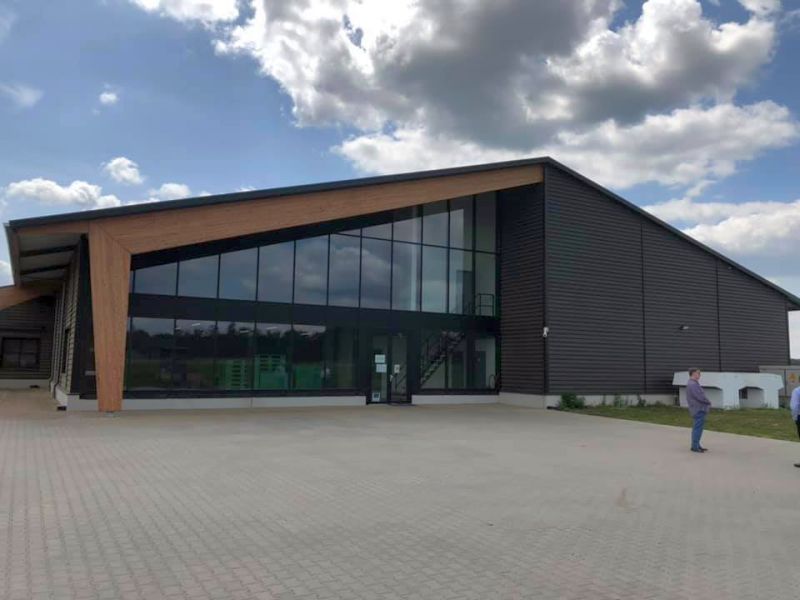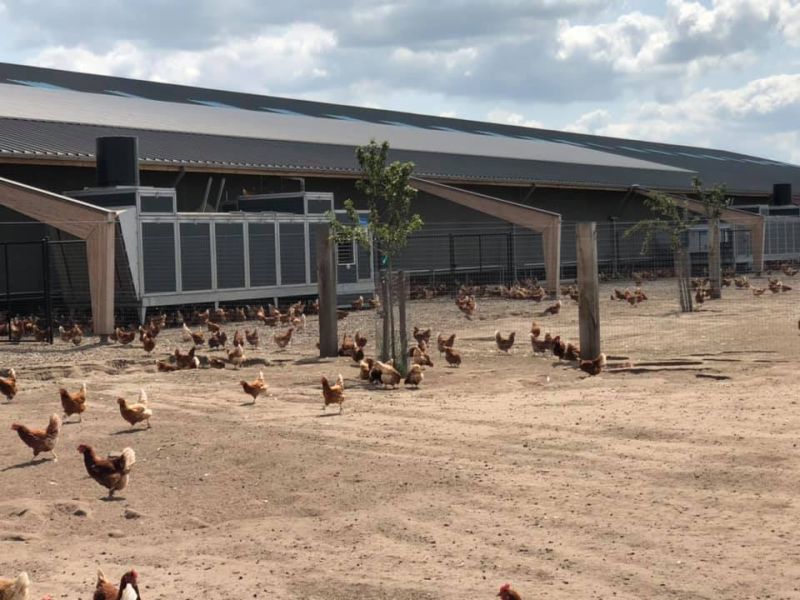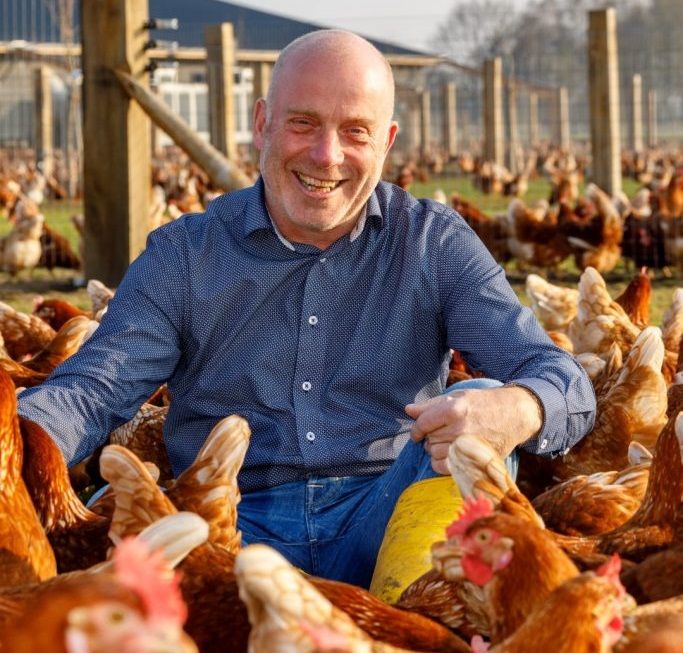
Lamberdina’s Farm, in the Limburg region of the Netherlands, is a 40k organic unit with a big heart and a unique story.
In 1919, Eric Theilen’s grandmother, Lamberdina, bought a piece of land and settled there with her husband Willem Thielen.
The farm grew and changed with the times, from a mixed-use, low-intensity homestead to an intensively farmed organic laying unit.
The difference between Lamberdina’s Farm, and many other organic units is the sense of responsibility Eric feels – towards his land, his birds, and his consumers.
“Everyone is aware of that the Earth is more vulnerable than we often think. We can no longer afford a 'make, use & waste' economy - we have to switch to sustainable forms of food production,” he said.
From this standpoint came Eric’s first brave decision – to ensure his hens were housed in the very best environment.
“My idea is to create a natural environment where the welfare of my animals and food safety is guaranteed. I want to produce eggs that will be laid by laying hens in the best condition.”
State-of-the-art system
The hens are housed on a Vencomatic Bolegg Terrace nest system with differentiated ‘work’ and sleeping areas that they have learned to discover and use.
The enclosed range areas are sown with grasses, clover and beautiful old tall trees, which offer the hens the feeling of absolute freedom and security.
In the case of avian influenza, the hens can still enjoy daylight and fresh air in the protected winter garden which covers 50% of the size of the internal floor area.
Winter gardens in the UK are not recognised as an advantage, and therefore only create an additional cost to the farmer.
Eric recognises his responsibility to the land that houses his farm, and his duty to ensure that particular piece of land can continue to provide a living in the future, for himself and subsequent generations – in the same way his Grandmother, Lamberdina was custodian in her time.
He said: “Sustainability at Lamberdina's Hoeve (Farm) means our health and the health of our planet, implementation of innovations and transfer of our country to the next generation.”
High-tech ECO Units
One such innovation implemented at the farm is the Vencomatic ECO Unit (Clima Unit), of which there are six installed – 2 for drying the litter on the manure belts at 1.25m3/bird/hour, and 4 providing room ventilation at 2.5m3/bird/hour.
Previous research on ECO units has shown that they capture around 80% of the fine dust.
The fine dust that accumulates in the ECO units will be periodically - at least weekly - washed out of the unit.

The dirty water with dust particles is then cleaned in a drum filter. By flushing the ECO units with this water, there will also be intensive contact with the outgoing air, water will evaporate and will cool.
The incoming air also cools as a result. A large part of the time the outgoing air will be moistened in this way to achieve the cooling of the incoming air.
The ECO unit acts as an air washer when this cooling works: ammonia will dissolve in the water.
The expectation is that at least 50% of the ammonia dissolves in the water.
The cooling aspect of the ECO Unit proved particularly effective during last month’s heatwave, when the unit at Lamberdina’s Farm was subjected to an external temperature of 39. 9°C, the Hotraco control registered a house temperature of only 27.2°C with a humidity of 46%.
With the predicted trend for global warming, the cooling abilities of the ECO unit will become ever more invaluable.
During the cooler months, the ECO Unit can reverse this process, and can provide a heat recovery of up to 80%, ensuring the temperature inside the shed remains constant throughout the year, keeping the hens comfortable.
Sustainable care
The real beauty of Lamberdina’s Farm comes in understanding how Eric balances the sustainable care of his animals and the environment, with a financially sound business.
According to Eric, the idea that small scale can be sustainable is outdated: “Small scale and sustainability are not synonymous. If you produce on a larger scale, you can invest much more efficiently in sustainability.”
The unit at Lamberdina’s Farm houses nearly 40,000 hens in 14 compartments of 2850 birds each.
Approximately half of the birds share feed and water systems and the same airspace.
This is a higher stocking density and is in complete contrast to the small, entirely separate, 3k organic units operated under UK regulations.
This large-scale system allows production costs to be minimised, meaning a lower priced product to the consumer.

'Honest information' for the public
Eric is conscious that he also has a duty to educate and help those consumers make responsible choices in terms of buying habits.
“I realise that as a farmer, in addition to running my business, I also have a duty to provide consumers with honest information.
“I want to inspire people with my story about where our food comes from. I am convinced that when people have the right information, they also choose the egg that has been laid under the most natural conditions.
“You can taste the happiness and well-being of our chickens in the egg.”
The unit at Lamberdina’s Farm looks a little different to standard poultry farms due to the inclusion of an education centre and a viewing tower where visitors can see the environment in which the hens that laid their eggs, are kept.
He added: “There is a growing information appetite: consumers want to know where their food comes from, how it was made, and by whom and which logistical journey the product has traveled. Consumers expect honest and transparent communication about the origin of what they eat.”
“Economy is important, but sustainably caring for people, animals, nature and the environment is a fully-fledged way of life. With this way of doing business we take responsibility for the day of tomorrow.”
